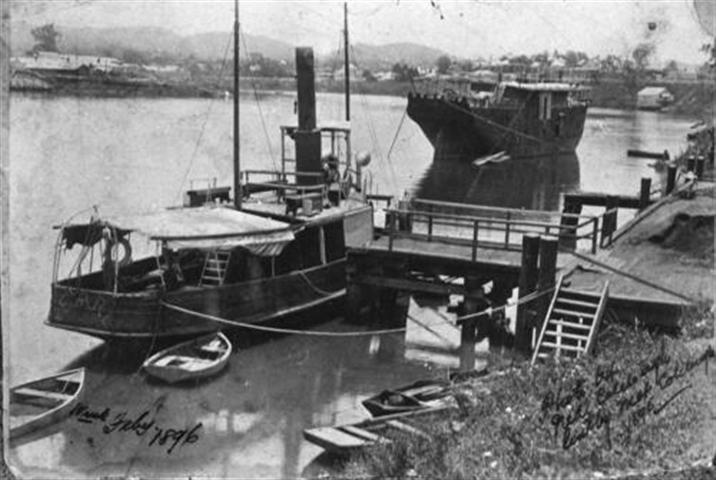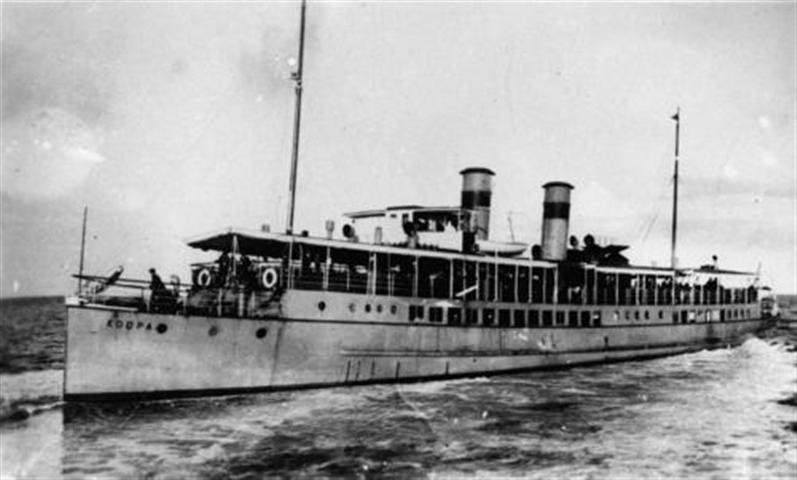On Wednesday 23rd November a small group of staff from the State Library of Queensland visited Redcliffe Library to attend the book launch of Boats on the Bay by Patricia (Pat) Gee.
Based at Redcliffe, Pat is Local History Librarian for the Moreton Bay Regional Council. Her association with the State Library goes back some years, as far back at least, as the inauguration of the Queensland Local Studies Group in 2000. She is in fact one of only two remaining original members of that group of local studies librarians who continue to meet several times a year to share information on a range of topics relating to local studies services in libraries.
More recently Pat spent a two week period as a researcher in residence with the John Oxley Library. During the two weeks she worked in the State Library in October 2010, her research was focused on Caboolture and its history. Her particular interest was related to her anticipated role in helping to establish the new local history room within the Caboolture Library (situated in the recently opened Caboolture Cultural and Ideas Hub). Pat has expressed her appreciation of the extended, uninterrupted research experience and the opportunity it gave her to immerse herself in her subject.

Pat is the author of several books about Redcliffe’s history in the John Oxley collection, among them The Redcliffe Cemetery, Redcliffe Remembers: the war years 1939-1949, Jetty memories: stories of the Redcliffe Jetty, Woody Point Jetty: memories, Redcliffe: historic houses and Redcliffe: looking at the landscape.
Like some of her other publications, Boats on the Bay is accompanied by a DVD which brings to life a fascinating history with a series of well chosen photographic images, compelling narration by actor William McInnes and some captivating elements of video footage. The launch celebrated the centenary of the arrival of the steam boat Koopa, built in 1911 for the Brisbane Tug and Steamship company. Requisitioned for war service in 1942 and eventually sold to the Moreton Bay Development Company in 1952, the Koopa ferried day trippers travelling from Redcliffe and Bribie Island for over forty years and at one time commanded the larger share of the excursion business in Moreton Bay.
Pat described the origins of Boats on the Bay as a series of talks about the excursion boats which serviced the “Redcliffe Run” between the 1870s and 1953. In the wake of the enthusiastic response to these talks, a DVD was produced and, as the desirability of expanding on what had revealed itself as an absorbing history became apparent, a book took shape. Expanding on the stories of the boats which plied the waters of Moreton Bay, the book’s interest is also in the wider social context which gave rise to a hugely popular excursion business whose heyday predated the car and the television set.

In the course of her presentation, Pat acknowledged the assistance given to her by State Library staff and made particular mention of the critical role of A.G. Davies’ ship register, Arrivals at the Port of Brisbane 1848-1920 in her research at the John Oxley Library. She also thanked the State Library, along with the Queensland Maritime Museum and the National Library for having provided the wonderful photographs which fill the pages of this book and are the essence of its narrative. The launch itself was undertaken by Redcliffe Mayor Allan Sutherland who reminisced about a childhood strongly associated with boats and boating in the Moreton Bay area.
The Mayor’s obvious pleasure in having this rich history captured and preserved for posterity is certainly shared by the State Library. And it goes without saying that we are delighted to be adding a signed copy of Boats on the Bay to the John Oxley Library's collection.
Libby Fielding, Legal Deposit Coordinator - State Library of Queensland
Comments
Your email address will not be published.
We welcome relevant, respectful comments.